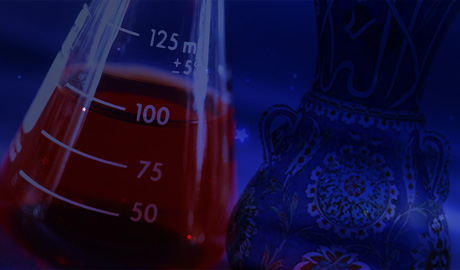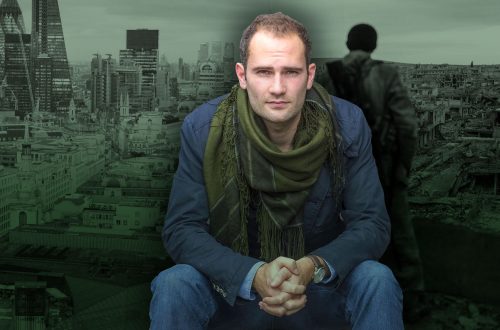
This is a guest post by Amjad Khan
Muslim apologists today like to talk a great deal about the ‘Golden Age of Islamic Science’ and the great contribution Islam and Muslims made to a number of important scientific fields. Some go so far as to suggest that it was the Muslims who gave Europe the Enlightenment. It’s almost as though a glorious past is enough to compensate for an abject present and the mere mention of past achievements often helps to instil that much needed feel good factor.
So what is the truth about the relationship between Islam and scientific advancement?
The vast majority of Muslim schools of thought today are sceptical, to say the least, about alternative forms of knowledge that could endanger or contradict the dictates of Islam as it is understood by the vast majority of Muslims. As such they are hostile to free enquiry and rational thought. In fact, some Saudi theologians still believe that the world is flat and the sun revolves around the earth (geo-centrism).
However, things weren’t always this bad. Muslims did undergo periods in history, during the reign of liberal rulers of the Abbasid and Andalusian empires between the 9th and 12th centuries AD, when rational thinking and free enquiry were championed. Hellenistic knowledge was translated and preserved, advances were made in optics, medicine, dentistry and other areas whilst great libraries were built to preserve and share knowledge.
However, these periods were cut short when the forces of orthodoxy, led by al-Ghazali, began to campaign against the endeavours of Muslim scientists, or rather scientists who were Muslim. A subsequent alliance between orthodox theologians and rulers contributed to the stagnation of Muslims in all important fields of knowledge.
In the battle between religious dogmatism and science in Europe, science won. In the same battle in Muslim heartlands, religious dogmatism won. This helps explains why Europe is where it is today, in terms of scientific and technological progress, and why the Muslim world is still playing catch up.
It is, therefore, more accurate to say that there were a number of very good scientists from Muslim backgrounds at one stage in history and their pre-eminence had very little to do with Islam and more to do with a liberal political climate. In fact, they were great scientists in spite of Islam rather than because of it. They struggled against dogmatism and blind faith and were often at odds with the religious conservatives of their day.
Furthermore, there has always been, and always will be, a positive correlation between political and social liberalism and scientific advancement. Reason and free enquiry simple cannot thrive in a society which is stifled by Abrahamic monotheism.
In an article that appeared in Viewpoint, Waseem Altaf listed a number of key Muslim scientists, their contributions and the reception they received at the hands of orthodox Muslim theologians and rulers. He stated:
Al-Razi (865 – 925 CE) from Persia, the greatest of all Muslim physicians, philosophers and alchemists wrote 184 articles and books, dismissed revelation and considered religion a dangerous thing. Al-Razi was condemned for blasphemy and almost all his books were destroyed later.
Ibn-e-Sina or Avicinna (980-1037CE), another great physician, philosopher and scientist was an Uzbek. Avicenna held philosophy superior to theology. His views were in sharp contrast to central Islamic doctrines and he rejected the resurrection of the dead in flesh and blood. As a consequence of his views, he became main target of Al-Ghazali and was labeled an apostate.
Ibn-e-Rushd (1126-1198 CE) or Averroes from Spain was a philosopher and scientist who expounded the Quran in Aristotelian terms. He was found guilty of heresy, his books burnt, he was interrogated and banished from Lucena.
Al-Khawarazmi (780-850 CE) was another Persian mathematician, astronomer and geographer. The historian Al-Tabri considered him a Zoroastrian while others thought that he was a Muslim. However nowhere in his works has he acknowledged Islam or linked any of his findings to the holy text.
Omar Kyayyam(1048-1131 CE), one of the greatest mathematicians, astronomers and poets was highly critical of religion, particularly Islam. He severely criticized the idea that every event and phenomena was the result of divine intervention.
Al-Farabi(872-950 CE), another great Muslim philosopher, highly inspired by Aristotle, considered reason superior to revelation and advocated for the relegation of prophecy to philosophy.
Ibn-ul-haitham or Hazen (965-1040 CE) was an outstanding physicist, mathematician, astronomer and an expert on optics. He was ordered by Fatimid King Al-Hakim to regulate the floods of the Nile, which he knew was not scientifically possible. He feigned madness and was placed under house arrest for the rest of his life.
He goes on to conclude:
As we go through the life history of these great men we find that they were influenced by Greek, Babylonian or Indian contributions to philosophy and science, had a critical and reasoning mind and were ‘not good’ Muslims or even atheists. A significant number of them were reluctant to even reveal the status of their beliefs for fear of reprisal from the fanatics. They never ascribed their achievements to Islam or divinity. And they were scholars and scientists because of a critical mind which would think and derive inspiration from observation and not scriptures which set restrictions on free thinking and unhindered pursuit of knowledge.
Attributing the achievements of the above scientists to Islam is a bit like attributing the European Enlightenment to Christianity. Human history is replete with stories of people who possessed, developed and valued various forms of knowledge whilst struggling against obscurantism, dogma and intimidation from the religious. In fact, the religious have always found alternative mediums for knowledge a threat. Islam is no different.
So in answer to the question and contrary to popular Muslim myth, there was no golden age of ‘Islamic Science’. Rational and critically thinking people from Muslim backgrounds were able, under a politically liberal climate, to explore and develop upon ideas first promulgated by their predecessors, the Chinese, the Indians and the Greeks.
So say otherwise, as apologists do today, is fanciful, wishful and points to a lack of understand of Muslim history.
I’ll end with some beautiful poetry from the Persian poet and Polymath, Omar Khayyam:
Look not above, there is no answer there;
Pray not, for no one listens to your prayer;
Near is as near to God as any Far,
And Here is just the same deceit as There.
And do you think that unto such as you;
A maggot-minded, starved, fanatic crew:
God gave the secret, and denied it me?–
Well, well, what matters it! Believe that, too.“Did God set grapes a-growing, do you think,
And at the same time make it sin to drink?
Give thanks to Him who foreordained it thus–
Surely He loves to hear the glasses clink!”


